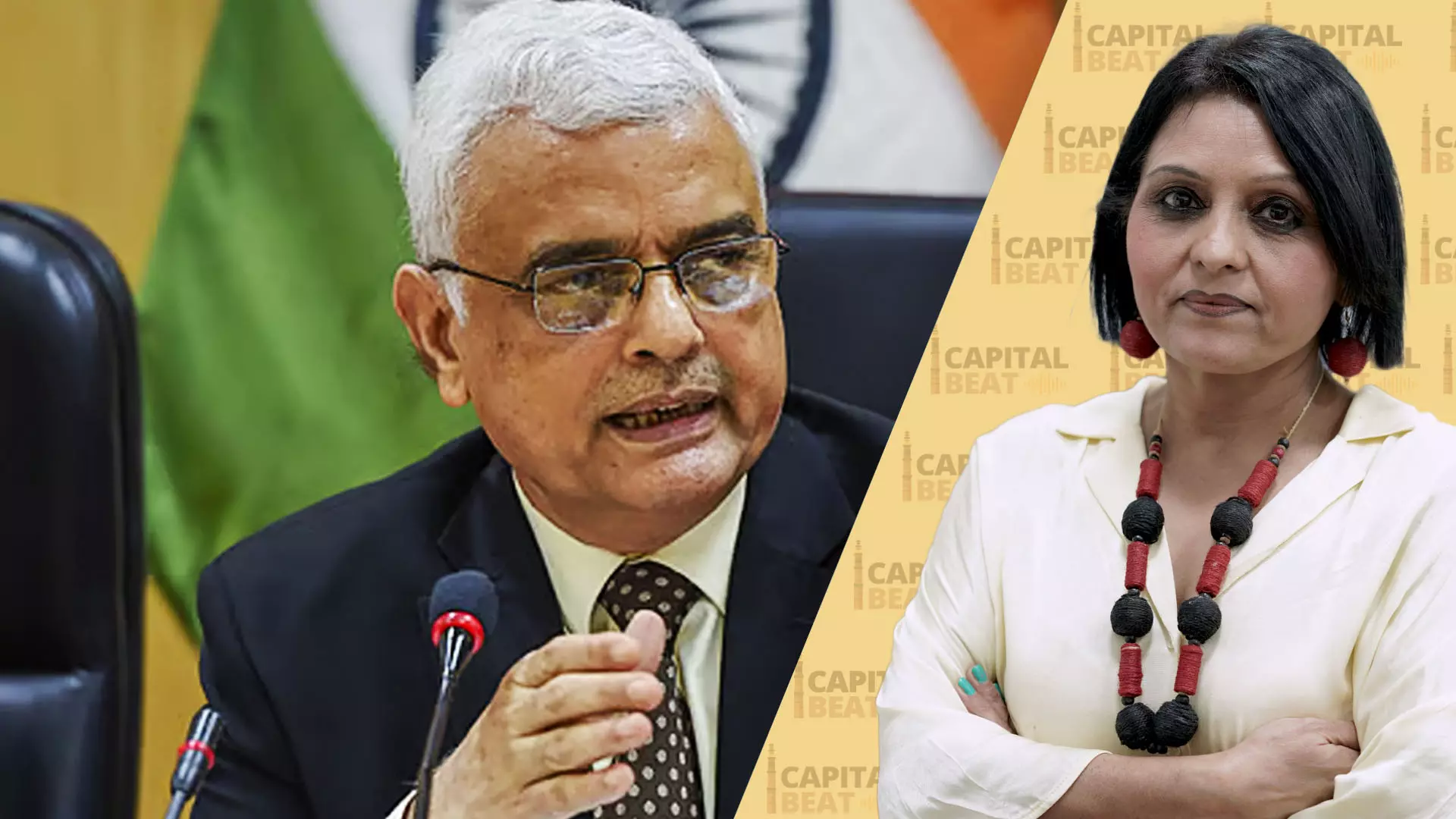
Ex-CEC on Bihar SIR: Last-minute exercise invites chaos, confusion | Capital Beat
Former CEC OP Rawat says last-minute SIR is ill-advised, calls for greater transparency to prevent disenfranchisement of voters.

In a compelling episode of Capital Beat titled 'Bihar SIR row: Petitioners argue voter has statutory right to remain in electoral rolls', the host engages former chief election commissioner OP Rawat in a probing discussion about the Election Commission (EC)'s last-minute Special Intensive Revision (SIR) of electoral rolls in Bihar.
The debate zeroes in on whether the hurried exercise risks disenfranchising the vulnerable while sparking controversy around transparency and procedural fairness.
'Ill-advised exercise'
Rawat cautions that holding an intensive revision just before elections is ill-advised. Traditionally, such overhauls occur well in advance—he cites a two-year gap between 2003’s revision and 2005 polls. Starting SIR at the eleventh hour, he warns, invites chaos and confusion.
He emphasises the potential for stakeholders to “fish in troubled waters,” a scenario reflected today in Bihar’s unfolding turmoil.
Also read: Bihar SIR can be set aside if illegality is proven, says Supreme Court
Acknowledging that mistakes may have crept in during roll preparation, Justice Suri Kanth (from the Supreme Court hearing) noted the EC’s openness to corrections. Meanwhile, lawyers Abhishek Manusinghe and Prashant Bhushan argue that the rushed SIR disproportionately affects marginalised groups—poor, SCs, OBCs, and Muslims—due to limited document coverage and procedural hurdles.
Rawat defends some of the EC’s remedial steps:
Allowing those in the 2003 roll to be treated as citizens without documentation.
Permitting those whose parents were in the 2003 roll to avoid having to submit documents, thus easing the process for nearly 30 per cent of people.
Systemic errors
He holds out hope for further relaxations to prevent disenfranchisement.
Regarding allegations of BLOs filling enumeration forms themselves, dead names surfacing in lists, and bizarre cases like 2,92,000 houses marked “0000” in Valmiki Nagar, Rawat attributes them to technological glitches or systemic error—not deliberate wrongdoing. He urges immediate public clarification when such anomalies emerge.
The arrest of journalist Ajit Anjum and a lack of EC communication, he laments, reveal a concerning breakdown in trust and openness.
Addressed next is the deletion of around 64 lakh voters—and withholding their names or reasons for exclusion. Rawat strongly urges increased transparency, calling for the EC to share category-wise deletion causes and return to its earlier practice of public engagement during controversial revisions.
Also read: Rahul Gandhi alleges ‘vote theft’ by Election Commission in Bihar SIR
On Rahul's claims
Responding to Rahul Gandhi’s explosive press conference claiming bulk/fake voters, removal of search tools, and refusal to accept Aadhaar or EPIC, Rawat rejects any notion of malafide design. He insists the absence of inquiry or published facts is what fuels suspicion—and that a swift audit and public disclosure could have defused the crisis.
He defends procedural safeguards: voting happens at polling stations under strict checks, making large-scale vote theft unlikely—even if there are roll errors.
Rawat clarifies that while revisions before every election are usual, this is the first intensive revision so close to an election—hence the upheaval. He agrees that such exercises should be reserved for non-election periods to avoid mass deletions, such as the 64 lakh in Bihar.
'Home Ministry must decide citizenship'
Pushing back, he asserts that citizenship determination lies with the Home Ministry, not the EC. The commission should adhere to Form 6 declarations—unless there’s prima facie evidence prompting notice, hearing, and a speaking order before deletion.
He echoes petitioners’ concerns regarding strict document requirements—matriculation/birth certificates. He endorses using alternative proofs easily accessible to the poor (e.g., EPIC, ration card) and congratulates current relaxations like parental roll linkage, while urging more such steps.
Also read: INDIA bloc leaders blast Bihar SIR at JNU: 'Indian democracy at stake'
Rawat calls on EC to:
Investigate roll anomalies promptly and make findings public
Facilitate resource-poor voters
Embrace transparency rather than “face-saving”
He remains hopeful the Supreme Court will provide a balanced resolution that minimizes harm to voters.
The content above has been generated using a fine-tuned AI model. To ensure accuracy, quality, and editorial integrity, we employ a Human-In-The-Loop (HITL) process. While AI assists in creating the initial draft, our experienced editorial team carefully reviews, edits, and refines the content before publication. At The Federal, we combine the efficiency of AI with the expertise of human editors to deliver reliable and insightful journalism.

